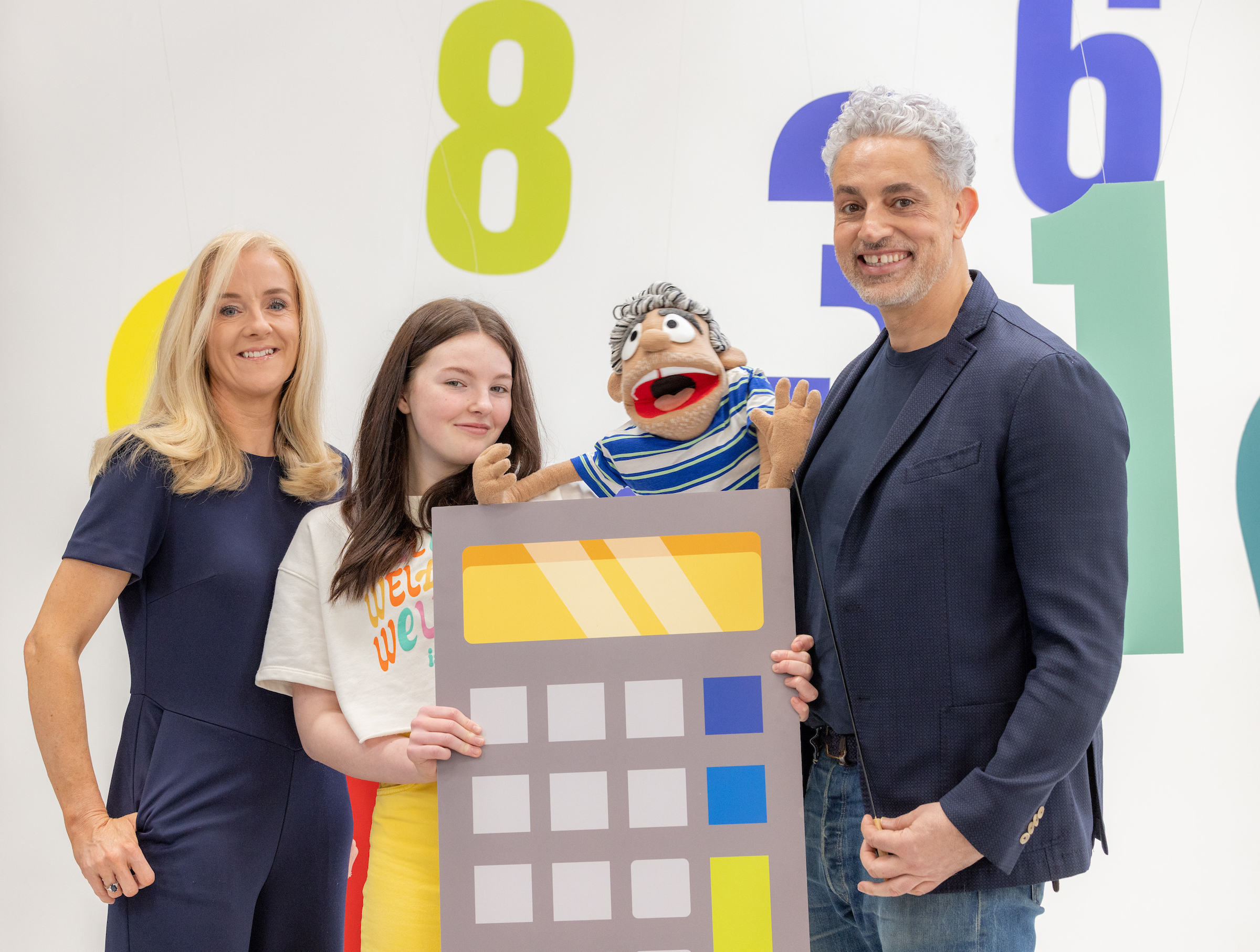Ireland’s financial literacy lags peers according to new national study

- Just over half of questions answered correctly in financial literacy study
- Ireland lags global peers with average financial literacy score of 54%
- Similar global study places Australia at 64%, Germany at 66%, and UK at 67%
- Women and young adults have lower than average financial literacy scores
- Basic numerical tests were strong, however knowledge of savings and tax reliefs were weak
- Bank of Ireland will launch a major national advertising campaign to highlight financial literacy supports available to teachers and parents
A nationwide Financial Literacy Score1 Index, commissioned by Bank of Ireland and conducted by Red C, has revealed that Ireland has an average financial literacy score of 54%, with just over half of test questions answered correctly. The Index also reveals a striking difference across gender and age, with women scoring almost 10% lower than men. Overall, 18-34 year olds score lowest (48%) with the highest score for over 65s (58%).
Compared to the Global S&P Financial Literacy survey2, the most recent closely comparable global study, carried out in 2015, Ireland’s score of 54% significantly lags peers including Australia’s at 64%, Germany at 66% and the UK on 67%.
The Financial Literacy Index also found that very few (28%) feel knowledgeable about financial matters. While one third claim to know about mortgages, only one fifth say they are familiar with investments and pensions. Encouragingly, more than half (58%) said that they review their finances personally each month.
Key findings:3
- There is a striking difference across demographics – those aged 18-34 score lowest at 48% with the highest score of 58% achieved by the over 65s.
- Socio-economic factors also play a part with the highest overall average score of 60% among ABC1s, compared to C2DE at 49% average score.
- Financial literacy is a gender issue too. Women in Ireland score almost 10% lower than men (49% answered correctly by women versus 58% by men).
- 26% of those who took part got less than 10 questions correct and would be considered to have very poor financial literacy.
- The best scores are achieved on basic numerical tests where 69% were answered correctly and understanding of the price of items with 64%
- Knowledge of savings and tax reliefs was lowest, with 37% of answers scored correctly on savings and 42% on tax relief
- All groups do poorly on ways to reduce credit card interest with just 19% able to identify all ways to avoid interest on credit cards
- All groups are challenged by the concept of compound interest – just 44% answering correctly.
Dawn Bailey, Head of Financial Wellbeing, Bank of Ireland said: “The right financial decisions can have a critical impact on our lives. If we are more financially knowledgeable and literate, we are better placed to make sound choices and improve our financial wellbeing.
“Good financial habits, like any positive habits, begin at an early age. Our schools are ideally placed to provide a head start in developing good financial habits for life, which is why Bank of Ireland has developed a comprehensive range of supports for teachers and parents.
“However, while we can play a strong role in helping improve financial literacy, to really move the dial requires a whole of society response. Bank of Ireland is engaging with other stakeholders to promote collaboration on this important issue.
“We will continue to invest in our financial literacy programmes with schools including our Money Smarts programme for secondary school students and Talking Cents resources for primary schools, because early intervention will ensure future improvement.”
Since 2017, 418,000 students across Irish primary and secondary schools have taken part in Bank of Ireland’s financial literacy programmes. The Bank will launch a major national advertising campaign this week to highlight the financial literacy supports available to teachers and parents.
1 The Financial Literacy Score study was completed with a nationally representative sample of n=1,041 adults aged 18+ living in the Republic of Ireland.
The Financial Literacy Score is calculated based on respondent’s knowledge on a wide range of common financial situations. It uses 24 questions across nine areas including basic numerical tests, prices, tax reliefs, savings, investments, credit cards and personal loans, mortgages and pensions.
2 International comparisons are made to the most recently available comparative study. The S&P Global FinLit Survey is a global measurement of financial literacy, probing four basic financial concepts: risk diversification, inflation, numeracy, and compound interest.
3 Red C, Financial Literacy Programmes in Schools, July 2021.
In October 2020, the OECD adopted the Recommendation on Financial Literacy which called on members to develop national strategies that take a sustained and co-ordinated approach to financial literacy. The OECD highlighted the fast changing and increasingly digital nature of financial services and proposed that particular attention is paid to the development of financial literacy skills to help current and future generations face contemporary financial challenges.
Bank of Ireland financial literacy resources available:
Secondary school teachers can find information on how to register for the Money Smarts Programme and participate in the Money Smarts Challenge, here.
Primary school teachers can register for the Talking Cents with Ollie programme here.
Parents and guardians can access the Talking Cents with Kids pack for children under 12 here.